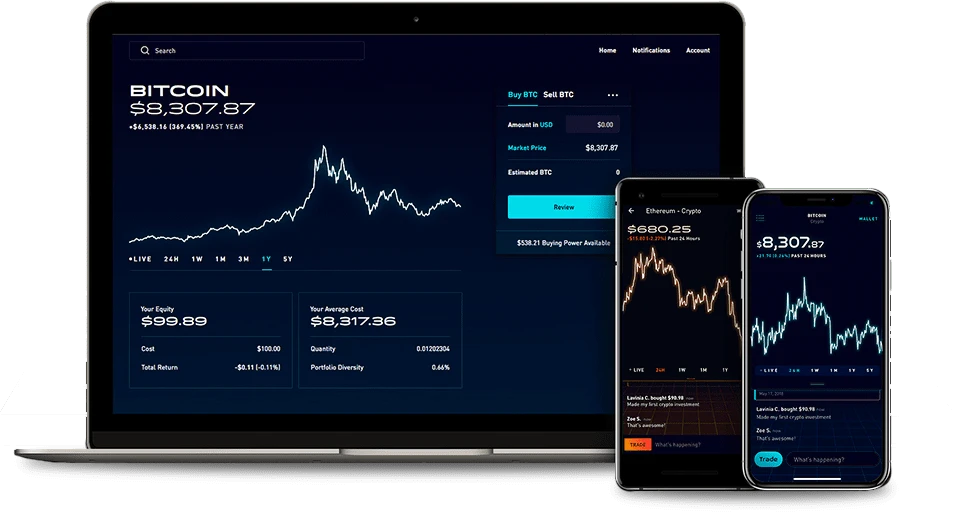
As the popularity of initial coin offerings (ICOs) continues to rise, it is crucial for potential investors to understand the steps involved in this complex process.
This article delves into 10 crucial steps that will provide readers with a comprehensive understanding of ICOs.
From analyzing whitepapers and identifying different token types to navigating legal considerations and avoiding scams, this guide offers an analytical and informed perspective on venturing into the world of ICOs.
Stay informed, stay protected, and make informed investment decisions.
ICO Process
The ICO process involves several important steps that potential investors must understand before participating. ICO funding has gained immense popularity in recent years as a means for startups to raise capital.
The first step in the ICO process is the creation of a whitepaper, which outlines the project's goals, technology, and token sale details. This document is crucial for potential investors to assess the viability and potential of the project.
Once the whitepaper is prepared, the project team will launch the token sale, allowing investors to purchase tokens in exchange for cryptocurrencies such as Bitcoin or Ethereum. The token sale typically lasts for a fixed period, during which investors can participate and contribute to the project's funding.

It is essential for investors to thoroughly research the project, evaluate its team and technology, and assess the potential risks before participating in any ICO funding or token sale.
Whitepapers
To gain a comprehensive understanding of the ICO process, it is essential to delve into the significance and purpose of whitepapers in evaluating potential investment opportunities.
Whitepapers serve as the foundation of an ICO project, providing detailed information about the project's goals, technology, and token distribution. These documents are designed to inform potential investors about the project's value proposition, its underlying technology, and its roadmap for development.
Whitepapers often include technical details about the project's smart contracts, outlining how the tokens will be created, distributed, and utilized within the project's ecosystem. By carefully analyzing the whitepaper, investors can assess the viability and potential of the project, making informed decisions about their investment.
It is crucial for investors to thoroughly review and understand the whitepaper before participating in an ICO, as it serves as a key indicator of a project's legitimacy and potential for success.
Token Types
Token types play a crucial role in the world of Initial Coin Offerings (ICOs).
One important distinction to understand is the difference between utility tokens and security tokens. Utility tokens are designed to provide access to a specific product or service, while security tokens represent ownership or investment in a company.

Additionally, the ERC-20 standard has become widely adopted as a framework for creating tokens on the Ethereum blockchain.
Understanding these token types and their implications is essential for anyone venturing into the world of ICOs.
Utility Vs Security
When differentiating between utility and security token types, it is essential to understand their distinct characteristics and regulatory implications.
A security token represents an investment contract, and its value is derived from an external asset or enterprise. These tokens are subject to securities regulations and require compliance with relevant laws.
On the other hand, a utility token provides access to a product or service within a blockchain ecosystem. Its primary purpose is to facilitate the functioning of the platform or network it is associated with. Utility tokens are not considered securities and are not subject to the same level of regulation.
However, it is important to note that the classification of a token as a security or utility token can vary based on the specific circumstances and jurisdiction. Therefore, it is crucial for ICO participants to carefully analyze the nature and characteristics of the tokens being offered before making any investment decisions.
ERC-20 Standard
After understanding the distinction between utility and security token types, it is now important to delve into the ERC-20 Standard (Token Types) to gain a comprehensive understanding of the various tokens available in the Initial Coin Offering (ICO) landscape.

The ERC-20 standard is a set of rules and guidelines that ensure compatibility and interoperability among different tokens on the Ethereum blockchain. Here are three key points to consider:
- Standardization: The ERC-20 standard establishes a common interface for tokens, allowing developers to create and deploy tokens that can interact seamlessly with other ERC-20 compliant tokens and smart contracts.
- Features: ERC-20 tokens possess key functionalities such as transferability, balance inquiry, and approval mechanisms, making them highly versatile and suitable for a wide range of applications.
- Token Development: The ERC-20 standard simplifies the process of token development by providing a template that developers can follow, saving time and effort.
Understanding the ERC-20 standard is crucial for anyone venturing into the ICO landscape, as it lays the foundation for creating and interacting with tokens in a secure and efficient manner.
Tokenomics Explained
Continuing the exploration of the Initial Coin Offering (ICO) landscape, it is essential to delve into the concept of Tokenomics, which encompasses the various aspects and dynamics of token types.
Tokenomics analysis is crucial for investors and entrepreneurs to understand the value and potential of a particular token. Tokenomics involves studying the token distribution, including factors such as the total supply, token allocation, and the distribution model.
It also evaluates the utility and functionality of the token within the project's ecosystem. Tokenomics analysis helps determine the economic viability and sustainability of a project, as well as its potential for growth and adoption.
Legal Considerations
Legal considerations are an essential aspect to be aware of before engaging in Initial Coin Offerings (ICOs). When venturing into ICOs, individuals and organizations should carefully consider the following:
- Privacy concerns: ICO participants must understand the privacy implications associated with their involvement. Blockchain technology, which underlies most ICOs, is decentralized and transparent, making it difficult to maintain complete privacy. It is important to assess the level of privacy desired and the potential impact on personal or business operations.
- Jurisdictional issues: ICOs operate across borders, raising jurisdictional challenges. Different countries have varying regulations and legal frameworks surrounding ICOs, making it crucial to understand the legal landscape in each jurisdiction involved. Failure to comply with applicable laws could result in legal consequences, financial penalties, or reputational damage.
- Compliance requirements: ICOs may have compliance requirements, such as Know Your Customer (KYC) and Anti-Money Laundering (AML) regulations. Participants should familiarize themselves with these requirements to ensure they are operating within the bounds of the law.
When considering ICO platforms, it is crucial to evaluate the security measures in place. This includes assessing the platform's track record of protecting investor funds and preventing hacking incidents.

Additionally, regulatory considerations are paramount, as compliance with applicable laws and regulations can help ensure the legitimacy and transparency of the ICO.
Evaluating ICO Security
To properly assess the security of ICO platforms, it is crucial to thoroughly evaluate their technical infrastructure and implementation. This process involves conducting a comprehensive evaluation of the platform's security measures to identify any vulnerabilities or weaknesses.
Here are three key areas to consider when evaluating ICO platform security:
- Technical infrastructure: Evaluate the platform's architecture, network security, and data encryption protocols to ensure robust protection against hacking and data breaches.
- Smart contract security: Assess the solidity of the smart contracts underlying the ICO to identify potential flaws or vulnerabilities that could be exploited.
- Track record and reputation: Conduct thorough due diligence on the platform and its team to assess their credibility, experience, and past performance in handling ICOs.
Regulatory Considerations for ICOs
Continuing the evaluation of ICO security, it is important to address regulatory considerations for ICOs and their respective platforms.
Regulatory compliance is a crucial aspect for ICOs, as it ensures that these offerings adhere to the legal framework and guidelines set by relevant authorities. Compliance with regulations not only protects investors but also promotes trust and transparency within the industry.
ICO platforms must ensure that they comply with existing financial regulations, anti-money laundering laws, and securities laws, among others. It is essential for ICOs to provide accurate and comprehensive information to potential investors, enabling them to make informed decisions.
Investor protection should be a primary concern for ICO platforms, and measures should be taken to safeguard the interests of investors, such as implementing KYC (Know Your Customer) and AML (Anti-Money Laundering) procedures.

Risk Assessment
One essential step in understanding Initial Coin Offerings (ICOs) is conducting a thorough risk assessment. This process involves evaluating the potential risks associated with investing in a particular ICO project.
Here are three key considerations to keep in mind during this risk assessment:
- Risk management: It is crucial to assess the project's risk management strategies and how they plan to mitigate potential risks. Look for transparency and accountability in their approach to risk management.
- Due diligence: Conducting thorough due diligence is essential to understanding the ICO project's background, team, and technology. This includes examining their whitepaper, researching the team members' experience, and assessing the project's viability.
- Market volatility: The cryptocurrency market is highly volatile, and ICO investments carry inherent risks. It is important to assess the potential impact of market fluctuations on the value of the ICO tokens.
Investment Strategies
Investors can optimize their involvement in Initial Coin Offerings (ICOs) by implementing effective investment strategies.
When it comes to investing in ICOs, it is crucial to have a well-thought-out plan to maximize returns and manage risk.
One important strategy is to thoroughly research and evaluate potential investment opportunities. This includes analyzing the project's whitepaper, team, market potential, and token economics.
It is also essential to diversify your portfolio by investing in a variety of ICO projects across different industries and geographical locations.
Additionally, setting clear investment goals and sticking to them can help avoid impulsive decision-making.

Risk management is another critical aspect of investment strategies. It is important to carefully assess the risks associated with each ICO and determine an appropriate level of investment based on your risk tolerance.
Implementing these strategies can help investors navigate the complex and volatile world of ICOs and increase their chances of success.
Market Trends
To gain insights into the current landscape of Initial Coin Offerings (ICOs), it is essential to examine the prevailing market trends.
Here is a current analysis of the market trends and investor sentiments in the ICO space:
- Increased Regulatory Scrutiny: Governments around the world are starting to regulate ICOs, leading to increased compliance requirements and investor protection measures.
- Growing Institutional Interest: Traditional financial institutions are showing interest in ICOs, with some even launching their own token offerings. This brings more credibility and liquidity to the market.
- Shift towards Security Tokens: There is a noticeable shift towards security tokens, which offer investors ownership rights and comply with existing securities regulations.
These trends indicate a maturing market, with stricter regulations and increased institutional participation. It is crucial for investors to stay informed and adapt to these changing dynamics to make informed investment decisions.
ICO Scams
When it comes to initial coin offerings (ICOs), it is important to be aware of the red flags that may indicate a potential scam. These red flags can include promises of high returns with little risk, lack of transparency in the project's team and goals, and pressure to invest quickly without proper due diligence.
To protect against fraud, potential investors should thoroughly research the ICO project, review the whitepaper, and verify the credibility of the team behind it. It is crucial to exercise caution and skepticism in order to avoid falling victim to ICO scams.

Red Flags for Scams
One warning sign of potential scams in initial coin offerings (ICOs) is the presence of red flags. It is crucial for investors to be aware of these indicators in order to protect themselves against fraud.
Here are three red flags to watch out for:
- Lack of transparency: If the ICO project does not provide clear and detailed information about its team members, advisors, or project roadmap, it may be a red flag. Transparency is essential for building trust and credibility.
- Unrealistic promises: Be cautious of ICOs that make exaggerated claims or promise high returns with little to no risk. If something sounds too good to be true, it probably is.
- Poor communication: Pay attention to how responsive and proactive the ICO team is in addressing investor concerns and providing updates. Lack of communication or evasive responses can indicate a scam.
Protecting Against Fraud
Investors can safeguard their investments by implementing strong measures to protect against fraud in initial coin offerings (ICOs). Fraud prevention is crucial in the realm of ICOs, as the decentralized nature of these offerings makes them susceptible to scams.
Therefore, conducting due diligence is paramount. Before investing in an ICO, investors should thoroughly research the project, its team members, and its whitepaper. They should verify the project's legitimacy, assess its viability, and scrutinize its financials.
Additionally, it is essential to scrutinize the ICO's smart contract and security measures to ensure the protection of funds. Engaging in active participation within the ICO community can also provide valuable insights and help identify any red flags or suspicious activities.
Regulatory Updates
The regulatory landscape surrounding Initial Coin Offerings (ICOs) has undergone significant updates. As governments around the world grapple with the rapid rise of ICOs, they are increasingly focusing on regulatory compliance to protect investors and maintain market integrity.
Here are three key regulatory updates to consider:

- Increased scrutiny: Governments are increasing their scrutiny of ICOs, with some countries requiring companies to register their offerings and comply with existing securities regulations.
- Investor protection: Regulatory authorities are implementing measures to protect investors from fraudulent ICOs by requiring companies to provide transparent and accurate information about their projects, team, and financials.
- Global coordination: International regulatory bodies are working towards establishing a coordinated approach to ICO regulation, aiming to create a level playing field and prevent regulatory arbitrage.
These regulatory updates aim to strike a balance between protecting investors and fostering innovation in the ICO space, providing a framework that promotes freedom and security for participants.
Frequently Asked Questions
What Are the Common Mistakes That Investors Make When Participating in an Ico?
Investors often make mistakes when participating in ICOs, such as failing to conduct proper due diligence and not prioritizing investor protection. These errors can lead to financial losses and expose investors to fraudulent schemes.
How Do ICOs Differ From Traditional Crowdfunding Methods?
ICOs differ from traditional crowdfunding methods in several ways. They offer advantages such as global accessibility, potential for higher returns, and liquidity. However, they also come with risks such as regulatory uncertainty and lack of investor protection.
Are There Any Specific Regulations or Guidelines for Conducting an ICO in Different Countries?
Regulations and guidelines for conducting an ICO vary by country. Some nations, like the US and China, have implemented stricter rules to protect investors, while others have taken a more lenient approach, allowing for greater innovation and flexibility in the ICO space.
What Are the Potential Risks Associated With Investing in Icos?
Investing in ICOs carries potential risks, including market volatility, lack of regulation, scams, and failure of projects. The ICO market is highly speculative and investors should conduct thorough research and due diligence before making any investment decisions.
Can You Provide Examples of Successful ICOs and What Factors Contributed to Their Success?
Several examples of successful ICOs can be observed in the cryptocurrency market. Factors contributing to their success include innovative technology, strong project teams, clear roadmaps, effective marketing strategies, and a well-defined token economy.
Conclusion
In conclusion, understanding the crucial steps involved in venturing into initial coin offerings (ICOs) is necessary for individuals seeking to participate in this emerging investment landscape.

By familiarizing themselves with the ICO process, whitepapers, token types, legal considerations, ICO platforms, investment strategies, market trends, ICO scams, and regulatory updates, potential investors can make informed decisions and navigate the complexities of the ICO market.
Being aware of these factors can help mitigate risks and maximize potential returns in this rapidly evolving industry.
 Business & FinanceHealth & MedicineTechnologyLifestyle & CultureScience & EnvironmentWorld NewsPrivacy PolicyTerms And Conditions
Business & FinanceHealth & MedicineTechnologyLifestyle & CultureScience & EnvironmentWorld NewsPrivacy PolicyTerms And Conditions
